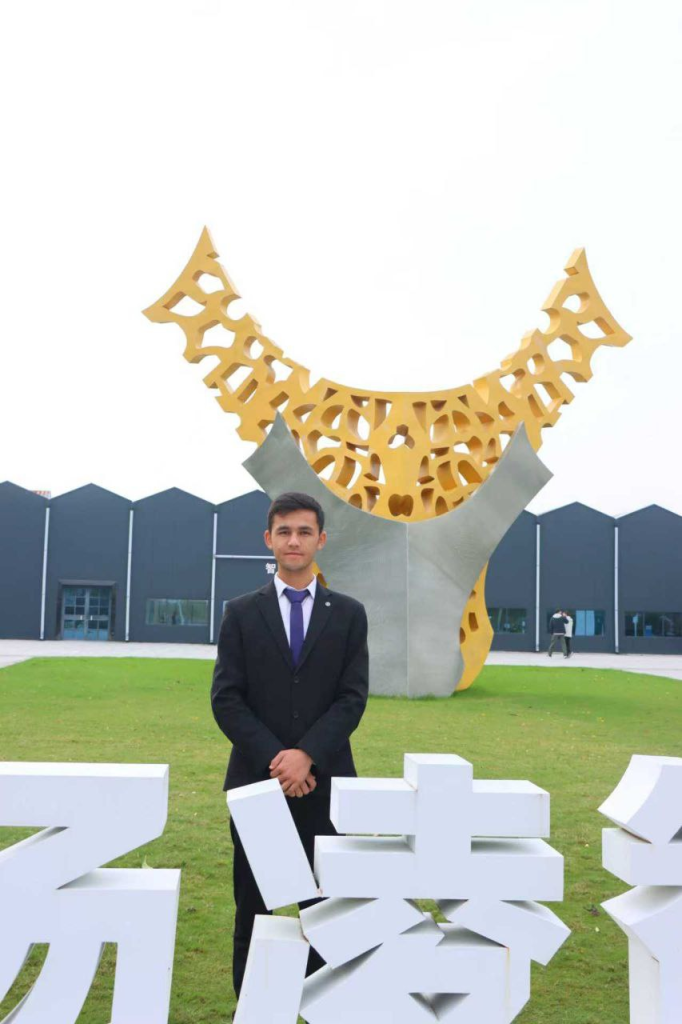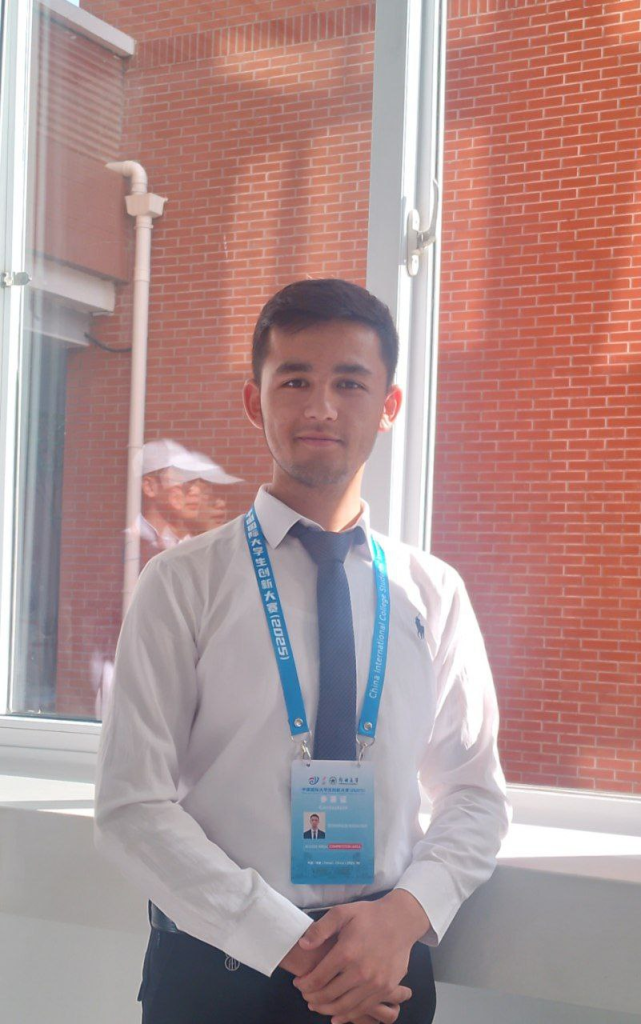Student of the Primary Education Department,
Faculty of Pedagogy, Kattakurgan State Pedagogical Institute
Annotation of Profession-Oriented Literature
Annotatsiya
Ushbu maqolada kasbga oid adabiyotlarning mutaxassislarni tayyorlash jarayonidagi o‘rni va ahamiyati yoritilgan. Tadqiqot davomida sohaga tegishli ilmiy va o‘quv adabiyotlar tahlil qilinib, ularning nazariy hamda amaliy jihatlari ko‘rib chiqilgan. Shuningdek, kasbiy bilim va ko‘nikmalarni shakllantirishda adabiyotlardan samarali foydalanish yo‘llari ochib berilgan. Maqola natijalari ta’lim jarayonida va amaliy faoliyatda muhim ahamiyat kasb etadi.
Kalit so‘zlar: Kasb, kasbiy ta’lim, adabiyotlar, mutaxassis, kompetensiya, nazariya, amaliyot, bilim, ko‘nikma, tahlil
Аннотация
В данной статье рассматривается роль и значение профессиональной литературы в процессе подготовки специалистов. В ходе исследования были проанализированы научные и учебные источники по специальности, раскрыты их теоретические и практические аспекты. Также показаны эффективные способы использования профессиональной литературы в формировании знаний и навыков. Результаты статьи имеют важное значение для образовательной и практической деятельности.
Ключевые слова:Профессия, профессиональное образование, литература, специалист, компетенция, теория, практика, знания, навыки, анализ
Annotation: This article discusses the role and importance of professional literature in the process of training specialists. The study analyzes scientific and educational sources related to the field and reveals their theoretical and practical aspects. In addition, effective ways of using professional literature to develop professional knowledge and skills are highlighted. The results of the article are significant for both educational and practical activities.
Keywords: Profession, professional education, literature, specialist, competence, theory, practice, knowledge, skills, analysis
Introduction
In today’s rapidly developing society, socio-economic progress has significantly increased the demand for highly qualified and competitive specialists. Therefore, one of the most important tasks of the vocational education system is to train professionals who possess modern knowledge and practical skills. In this process, profession-oriented literature plays a crucial role as a primary source of information. Such literature contributes to enriching theoretical knowledge, developing practical experience, and enhancing professional competencies of specialists.
Through in-depth study and analysis of scientific, educational, and methodological sources, students and professionals gain access to current developments in their fields, improve independent thinking, and develop problem-solving skills. At the same time, effective use of professional literature creates opportunities for applying innovative approaches in professional activities.
In modern education, systematic study, selection, analysis, and annotation of profession-oriented literature are of great importance. Annotation allows the main content of a source to be presented concisely and clearly, ensuring clarity and efficiency in scientific work. This helps researchers and learners save time and quickly identify relevant information. This article explores the role of profession-oriented literature in the educational process, the theoretical foundations of annotation, and its practical applications. The analysis of existing literature and evaluation of its effectiveness serve as the basis for improving vocational education, enhancing research quality, and strengthening professional training.
Main Part
Profession-oriented literature is an essential component of vocational education and specialist training. It enables students and professionals to acquire in-depth theoretical knowledge, develop practical skills, and enhance professional competencies. This type of literature includes scientific monographs, textbooks, учеб manuals, research articles, and methodological guidelines. The selection and systematization of professional literature are particularly important. The relevance, scientific validity, and practical significance of sources directly affect the quality of specialist training. Therefore, it is necessary to analyze literature in each professional field and identify its key ideas and conclusions.
The process of annotating literature increases the effectiveness of scientific research. Annotation briefly presents the content of a source, revealing its purpose, main focus, and scientific value. Through annotation, researchers can quickly determine the relevance of a source for their studies. This process also develops analytical thinking skills.
Moreover, the role of modern information technologies in working with profession-oriented literature is steadily increasing. Electronic textbooks, online scientific databases, and digital libraries make the acquisition of professional knowledge more accessible and efficient. These resources expand opportunities for independent learning and continuous knowledge updating. As a result, the quality of education improves, and students develop skills in searching, selecting, and critically evaluating information, which enhances their competitiveness.
Profession-oriented literature also broadens specialists’ professional outlooks by introducing advanced experiences and modern approaches. Regular engagement with such literature increases professional responsibility and fosters a need for continuous self-development, ultimately leading to more effective professional performance.
It should be emphasized that annotating professional literature is not merely a process of summarizing information, but an important skill that reflects analytical thinking, logical reasoning, and scientific approach. Through annotation, authors learn to distinguish key ideas from secondary information and present content clearly and concisely. This contributes to the development of scientific communication skills, professional literacy, and independent decision-making abilities.
In addition, profession-oriented literature serves as a reliable foundation for integrating theory with practice in vocational education. Systematic work with professional sources helps students understand real-life professional situations and apply theoretical knowledge effectively. Such literature also supports the development of critical thinking and analytical skills by encouraging comparison, evaluation, and interpretation of different scientific viewpoints. Furthermore, exposure to high-quality professional literature promotes academic integrity and research ethics among students. The use of annotated sources enables learners to navigate large volumes of information more efficiently and select relevant materials for their studies.
Profession-oriented literature also contributes to lifelong learning by motivating specialists to continuously update their knowledge. As a result, professionals become more adaptable to changes in their field and technological advancements. Consequently, effective use of professional literature enhances the overall quality of vocational education and specialist training.Moreover, profession-oriented literature plays an important role in forming students’ professional identity and motivation toward their future careers. By studying field-specific sources, learners gain a clearer understanding of professional standards and expectations. Such literature helps bridge the gap between academic learning and workplace requirements.
In addition, engaging with diverse professional texts improves students’ academic reading and writing skills. Profession-oriented literature also supports evidence-based learning by encouraging the use of verified scientific information. Through regular analysis of professional sources, students develop the ability to justify their ideas with credible references. This process strengthens their problem-solving skills and independent learning capacity. Ultimately, continuous work with professional literature contributes to the formation of competent, responsible, and competitive specialists.
Conclusion
In conclusion, profession-oriented literature has significant scientific and practical value in the process of specialist training. It contributes to the formation of professional knowledge, skills, and competencies, while the analysis and annotation of literature enhance the quality of scientific research. The study demonstrates that effective use and proper annotation of professional literature increase the efficiency of the educational process and ensure the competitiveness of specialists.
Annotation develops students’ analytical and critical thinking skills and forms the ability to present scientific information concisely and accurately. It also helps to better understand the structure of scientific works, improving academic literacy among students and researchers. As a result, the overall quality of education is enhanced.
Furthermore, profession-oriented literature expands specialists’ professional perspectives, introduces advanced experiences and modern approaches, and increases professional responsibility. Continuous engagement with such literature fosters self-development and leads to more effective professional activity. Thus, studying and annotating profession-oriented literature plays a vital role in improving research effectiveness, enhancing educational quality, and strengthening professional competence. Moreover, profession-oriented literature plays an important role in forming students’ professional identity and motivation toward their future careers. By studying field-specific sources, learners gain a clearer understanding of professional standards and expectations.
Such literature helps bridge the gap between academic learning and workplace requirements. In addition, engaging with diverse professional texts improves students’ academic reading and writing skills. Profession-oriented literature also supports evidence-based learning by encouraging the use of verified scientific information. Through regular analysis of professional sources, students develop the ability to justify their ideas with credible references. This process strengthens their problem-solving skills and independent learning capacity. Ultimately, continuous work with professional literature contributes to the formation of competent, responsible, and competitive specialists.
References
1.Karimov, I.A. High Spirituality Is an Invincible Force. Tashkent: Ma’naviyat, 2008.
2. Abduqodirov, A.A. Methodology of Vocational Education. Tashkent: O‘qituvchi, 2016.
3. Yo‘ldoshev, J.G. Pedagogical Technologies. Tashkent: Fan, 2018.
4. Qodirov, B.R. Competency-Based Approach in Education. Tashkent: Innovatsiya, 2020.
5. Salimov, T.X. Research Methodology. Tashkent: Universitet, 2019.
6. Law of the Republic of Uzbekistan “On Education”. Tashkent, 2020.7. Ziyomuhammadov, B. Pedagogical Mastery. Tashkent: O‘qituvchi, 2017.





